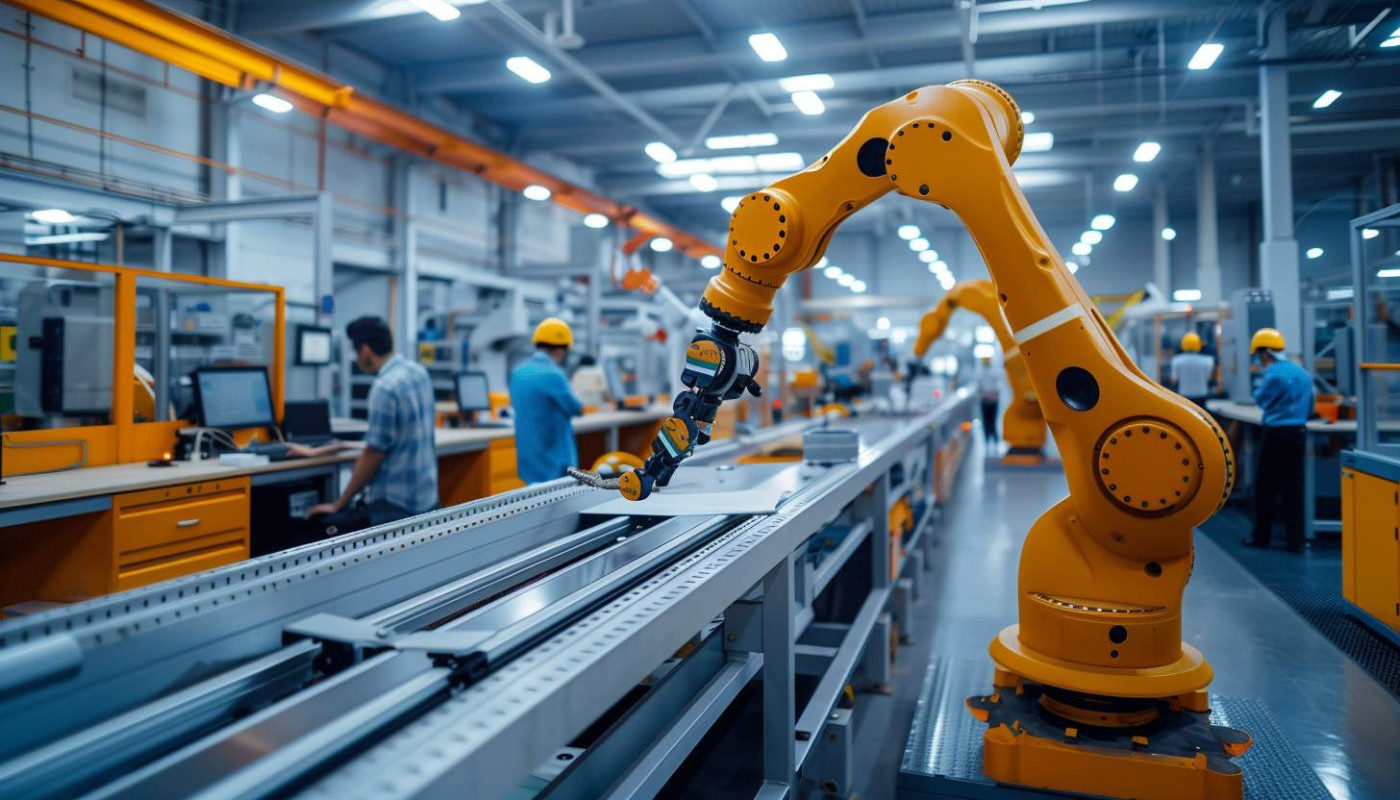Table of contents
In an era where competition is intense and the pace of innovation relentless, businesses constantly seek new ways to enhance efficiency and productivity. Artificial Intelligence (AI) has emerged as a pivotal force in this quest, reshaping the landscape of how work is done and value is created. This exploration delves into the multifaceted impact of AI on businesses, uncovering how this technology can streamline operations, reduce costs, and unlock new potential. Read on to unveil how integrating AI into business strategies can lead to significant improvements in performance and competitive advantage.
The Role of AI in Streamlining Business Operations
AI automation is revolutionizing the way businesses handle mundane and repetitive tasks, allowing employees to focus on more strategic initiatives. By implementing AI, companies can significantly improve their operation efficiency, particularly in the realm of routine task automation. For instance, process mining, a technique powered by AI, meticulously analyzes data logs from various business processes to identify bottlenecks and provide actionable insights. This advanced analysis enables organizations to refine their operations for maximum efficiency.
Optimized supply chains are another area where AI is making substantial inroads. By predicting and responding to supply and demand fluctuations in real-time, AI algorithms help companies avoid overstocking or stockouts, leading to cost savings and increased customer satisfaction. Furthermore, AI in decision-making enhances a company's agility and precision. It sifts through vast quantities of data to provide evidence-based recommendations, paving the way for informed and timely decisions. Imagine a scenario where AI steps in to schedule employee shifts, manage inventory levels, and even negotiate with suppliers, turning what once were laborious tasks into smooth, automated operations.
AI-Driven Data Analysis for Strategic Insights
One of the most transformative capabilities of artificial intelligence (AI) is its proficiency in handling vast quantities of data to extract valuable insights. The application of machine learning, a subset of AI, enables businesses to harness predictive analytics, a powerful tool for forecasting trends and consumer behavior. This type of AI data analysis not only informs data-driven strategy but also enhances the personalized customer experience, addressing individual preferences and needs. An illustrative case is when a company uses AI to analyze consumer data insights, thereby tailoring marketing strategies that resonate with specific audience segments. For instance, a retail brand may employ an advanced AI agency to pinpoint shopping patterns, optimize inventory, and craft personalized promotions, which could lead to higher conversion rates and customer satisfaction. As businesses adopt AI-driven approaches, they stand to gain a competitive edge through refined operational efficiency and elevated productivity.
Enhancing Customer Service with AI
AI chatbots and virtual assistants harness the capabilities of natural language processing (NLP) to revolutionize customer service. With their ability to understand and process human language, these tools respond to inquiries with remarkable agility, thereby reducing response times significantly. Customers benefit from instant support, leading to a marked increase in overall satisfaction. For instance, consider an AI system that manages customer queries for a large telecommunications company; it can field thousands of calls simultaneously, addressing common concerns such as billing issues or service disruptions without human intervention. This not only streamlines the experience for the consumer but also allows customer service representatives to focus on more complex tasks that require a personal touch. The deployment of such AI customer interaction technologies is a testament to the dedication of businesses to provide improved customer service and underscores the transformational impact AI has on operational efficiency.
Boosting Productivity through AI Collaboration Tools
AI collaboration tools have revolutionized the way teams communicate and manage projects, particularly enhancing remote work efficiency. These sophisticated platforms integrate predictive scheduling, which uses artificial intelligence to anticipate project timelines and resource needs, adjusting plans proactively to keep teams on track. Imagine a distributed team, scattered across different time zones, tasked with a complex project. AI project management software enables seamless team coordination, allowing members to share updates, track progress, and access documents in real time. This eliminates bottlenecks in communication and fosters a unified approach to meeting objectives. Such tools are not only about keeping team members connected; they are about optimizing workflows, reducing errors, and cutting down the time spent on administrative tasks. As a result, businesses can focus on strategic goals, fostering innovation and growth. A senior project manager with expertise in AI integration would be ideally positioned to exploit these advanced tools, ensuring that teams are synchronized and projects are delivered efficiently, regardless of the physical distance between collaborators.
AI in Human Resource Management
The integration of AI into Human Resource Management has revolutionized the landscape of talent acquisition, bringing forth substantial improvements in the efficiency and effectiveness of recruitment processes. AI in recruitment not only enhances candidate sourcing through advanced algorithms but also optimizes the screening process by incorporating Applicant Tracking Systems (ATS). These systems swiftly parse countless resumes to identify the most suitable candidates, drastically reducing the time and resources traditionally required for this task. As for employee engagement, AI-driven analytics tools are increasingly being leveraged to monitor and analyze employee interactions and satisfaction levels, enabling HR professionals to proactively address any emerging issues before they escalate into wider discontent or attrition.
Talent acquisition benefits particularly from the predictive capabilities of AI, which can forecast the success of potential hires by examining vast datasets and identifying patterns that correlate with high performance and retention rates. In tandem, retention strategies are bolstered by AI's ability to personalize employee experiences and career development paths. By analyzing data on employee behavior and preferences, AI can aid in crafting customized training programs and career advancement opportunities that align with individual aspirations, thus fostering a more engaged and committed workforce. Indeed, human resources AI stands as a testament to the remarkable potential of artificial intelligence in augmenting the core functions of HR departments and propelling businesses toward greater overall efficiency and productivity.
Similar articles










